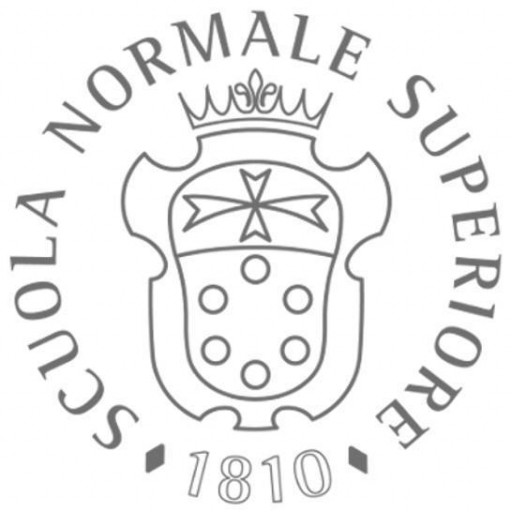Photos of university / #jamescookuniversity
This system provides students with the theory, skills and program of geology. The core subjects provide the fundamental training and background in environmental earth science and geology essential to learning to be a geologist. Electives provide a broad scientific foundation at degree one. In levels two and a few students can pick from multiple minors to acquire additional knowledge and skills from other applicable areas.
The Bachelor of Science in Geology at James Cook University offers a comprehensive and in-depth study of the Earth’s solid materials, structures, processes, and history. This program is designed to equip students with a solid foundation in earth sciences, integrating theoretical knowledge with practical skills essential for careers in resource exploration, environmental management, and natural hazard assessment. Throughout the course, students will explore key topics such as mineralogy, petrology, structural geology, sedimentology, geophysics, and geochemistry, gaining insight into the Earth's complex systems and the dynamic processes that shape our planet. The program emphasizes hands-on learning through fieldwork, laboratory experiments, and computer-aided data analysis, ensuring graduates are prepared for real-world challenges. Students will have the opportunity to participate in geological mapping projects, mineral exploration, and environmental impact assessments, fostering essential skills in critical thinking, problem-solving, and scientific communication. The curriculum also addresses contemporary issues in geology, including climate change, resource sustainability, and natural disaster mitigation, preparing students to contribute meaningfully to society’s environmental and economic needs. Furthermore, the program encourages interdisciplinary collaboration, integrating knowledge from ecology, chemistry, and physics to provide a holistic understanding of earth systems. Graduates of this program can pursue diverse career pathways in mineral and energy resource industries, environmental consultancy, government agencies, research institutions, and academia. The program's flexible study options allow students to tailor their academic experience according to their interests and career goals, supported by expert faculty and state-of-the-art facilities. A strong focus on research and field experiences ensures students develop the practical competencies required for professional success and lifelong learning. Upon completion, students will be well-equipped to contribute to sustainable management of Earth’s resources and address global environmental challenges. The Bachelor of Science in Geology at James Cook University stands out as a rigorous and rewarding program, providing the knowledge, skills, and experience necessary to make a positive impact in the field of earth sciences.
- Year 12 or equivalent
- Assumed knowledge: English (Units 3/4( C), mathematical methods (Units 3/4,C). Recommended: one of biology, chemistry, earth and environmental science, science, marine science, pro maths or mathematics. Students without chemistry (Units 3/4C) or mathematial methods (Units 3/4C) needs to take chemistry and/or mathematics esoteric topics in Year 1 ).
The financing studies for the Bachelor of Science in Geology at James Cook University encompass a range of options designed to support students throughout their academic journey. Domestic students may be eligible for government-funded schemes such as the Australian Government’s Commonwealth Supported Place (CSP), which substantially reduces tuition fees for eligible candidates. Additionally, students can apply for various scholarships offered by James Cook University, including merit-based scholarships, indigenous scholarships, and those aimed at students demonstrating financial need. These scholarships often cover partial or full tuition fees and sometimes include allowances for living expenses.
International students enrolling in the Geology program are responsible for the full international tuition fees set by the university, and it is advisable to explore various financial aid options beforehand. James Cook University provides a range of scholarships specifically for international students, some of which are renewable and based on academic achievement or other criteria. Students are also encouraged to seek external funding opportunities, such as scholarships from government agencies, international organizations, or private foundations.
Students can consider part-time work opportunities on or near campus to supplement their income, subject to visa regulations for international students. The university also offers financial advice services to help students plan their finances effectively and understand their payment schedules, including tuition fee payment options and deadlines. Student loans are generally not available from the university itself, but students can explore external loan arrangements if necessary.
Overall, the funding landscape for Geology studies at James Cook University includes a mixture of government assistance, university scholarships, external funding sources, and employment options, all designed to make higher education accessible for diverse student populations. Planning ahead and exploring multiple funding avenues can greatly alleviate financial burdens and enable students to focus on their academic and professional development in the field of geology.
The Bachelor of Science in Geology at James Cook University is a comprehensive undergraduate program designed to provide students with a solid foundation in earth sciences, with particular emphasis on geological processes, mineral and energy resource exploration, environmental management, and applied geosciences. The curriculum covers a wide range of topics including mineralogy, petrology, sedimentology, structural geology, geophysics, geochemistry, and field methods, preparing graduates for careers in resource exploration, environmental consultancy, hazard assessment, and research. Students gain practical skills through extensive fieldwork, laboratory analyses, and internships, often engaging with real-world geological problems in various Australian environments and beyond. The program also emphasizes the importance of sustainable resource management and environmental protection, equipping students with the knowledge to address contemporary challenges related to natural resource utilization and climate change. James Cook University’s close links with industry and government agencies enable students to participate in industry-sponsored projects and gain valuable work experience. The coursework integrates modern technologies such as GIS (Geographic Information Systems), remote sensing, and geophysical methods, ensuring graduates are well-prepared for technological advancements in the field. The program typically spans three years of full-time study, with options for research projects, specializations, or further postgraduate study. Graduates of the Bachelor of Science in Geology at James Cook University are equipped with analytical, research, and critical thinking skills necessary for employment in diverse sectors including mining, consulting, environmental management, and academia. The university’s strong focus on field-based learning and practical application ensures students not only acquire theoretical knowledge but also develop hands-on experience critical for successful careers in geosciences.









